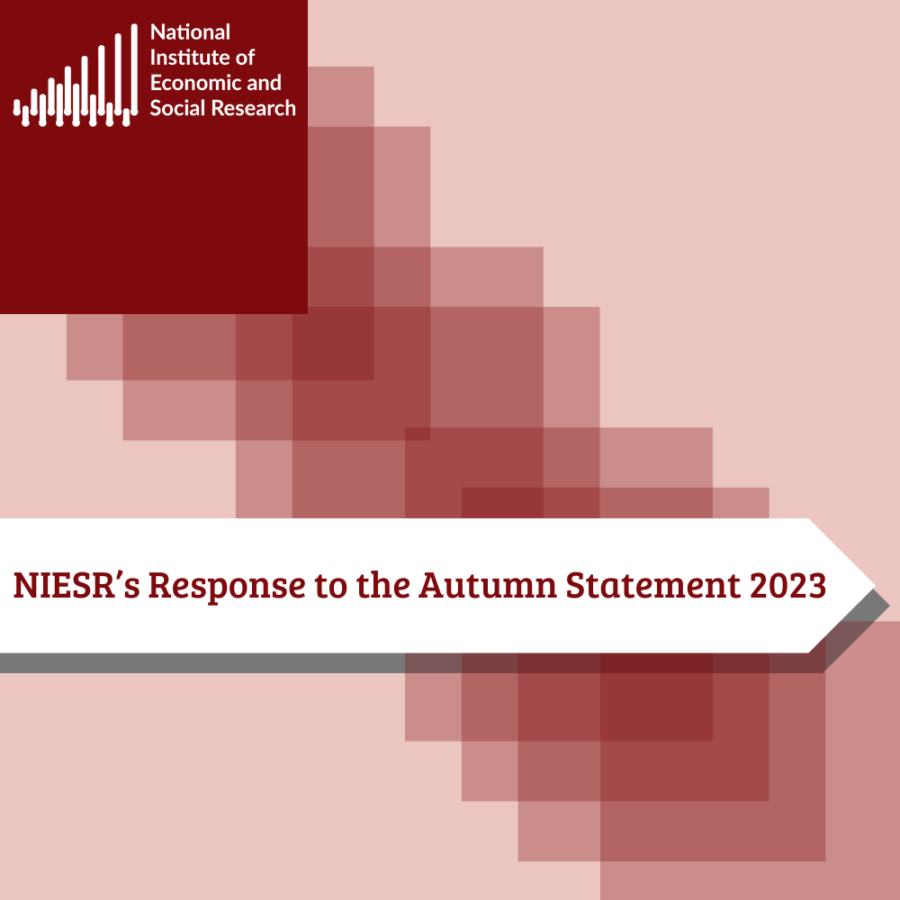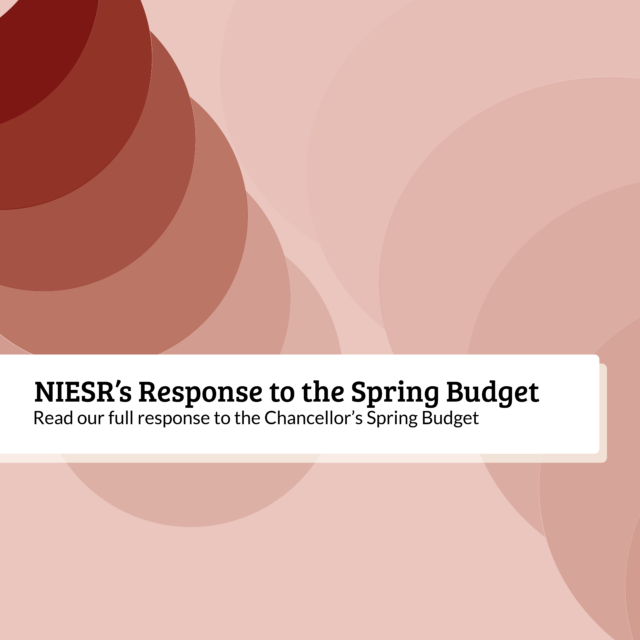NIESR’s Response to the Autumn Statement 2023
 Pub. Date
Pub. Date
22 November, 2023
 Pub. Type
Pub. Type

Main Points
- The Chancellor delivered his Autumn Statement against a background of sluggish growth and above target inflation.
- NIESR continues to argue that fiscal policy ought not to be guided by arbitrary fiscal rules but, rather, should be set to bring to the forefront distributional concerns, productivity, well-being, ecological sustainability, and consistency across the devolved nations and English regions.
- Despite the downward revision to their GDP growth forecast and the upward revision to their inflation forecast, the OBR think the Chancellor will meet his fiscal targets with more headroom than in their March projection.
- This extra fiscal space enabled the Chancellor to cut National Insurance Contributions, make permanent the ‘full expensing’ of investment introduced in the March budget, provide some additional support for strategic manufacturing sectors, and introduce some welfare reforms.
- But NIESR still think that more could have been done; in particular, we continue to maintain the need to increase public investment to at least 3 per cent of GDP per year, which would help unlock business investment.
- We welcome the increase in the National Living Wage as it will boost the living standards of working families in the bottom two income deciles but sustained real growth will be necessary to help the households in income deciles 3-5 hit hard by the cost-of-living crisis.
- Extending financial incentives for free ports and investment zones will help generate a bit more growth, and further devolution deals are also welcome. But the problem is a lack of scale in public investment and a failure to have targeted industrial and skills policy. Levelling Up as it stands will not reduce regional inequalities in a significant, sustained manner.




